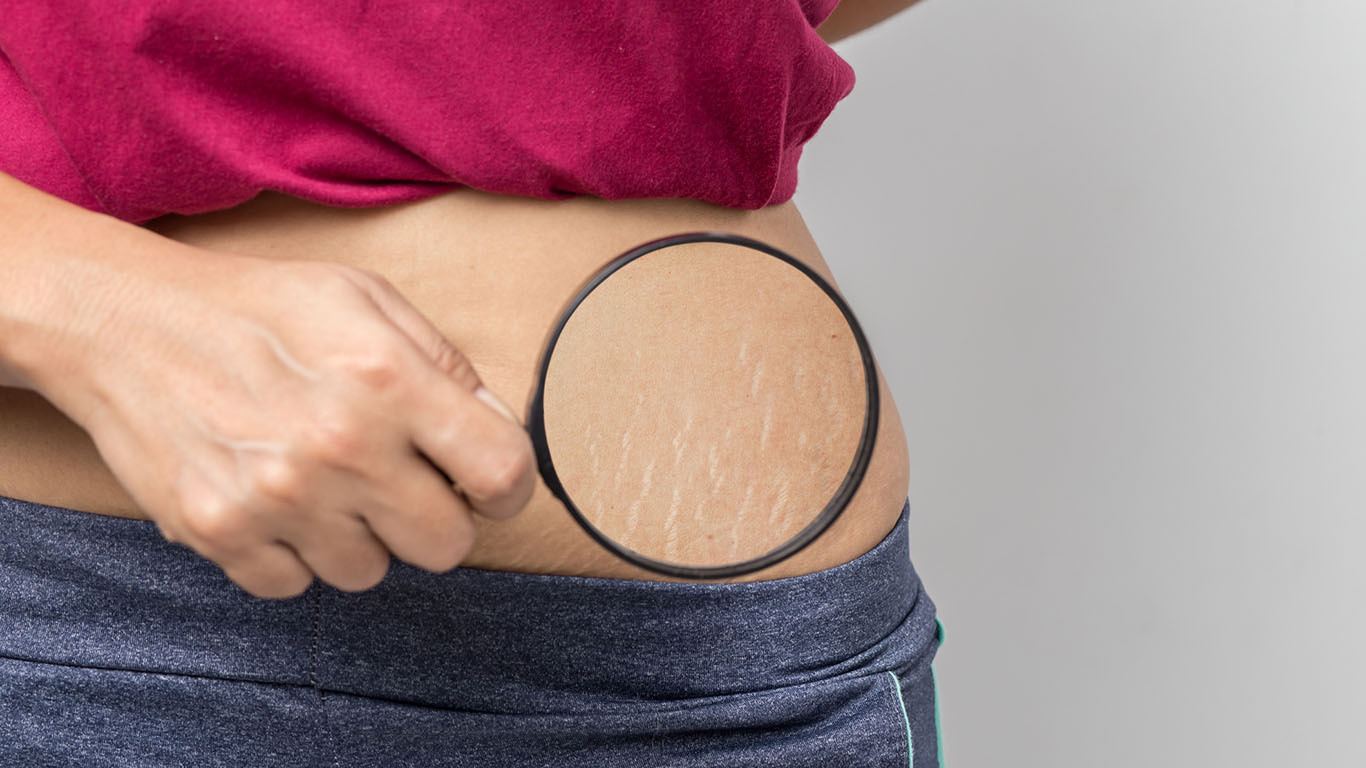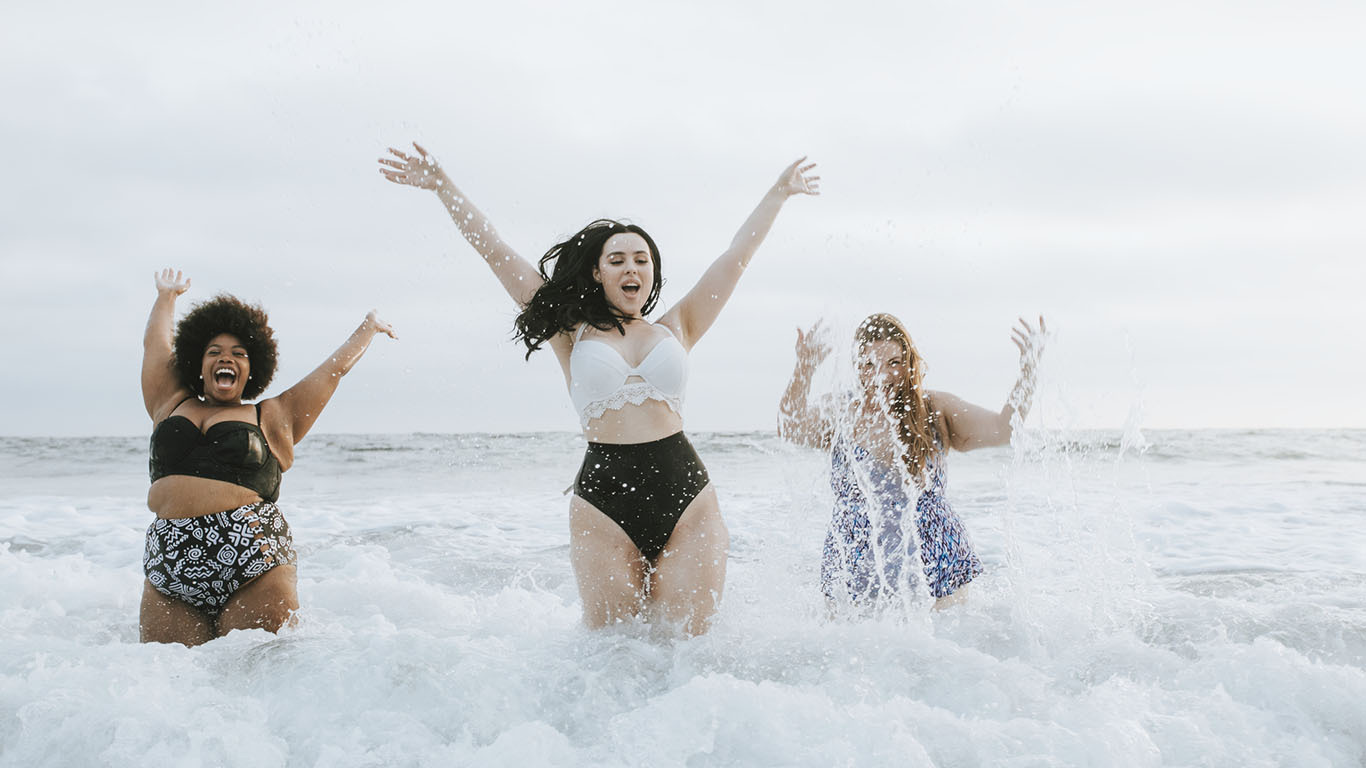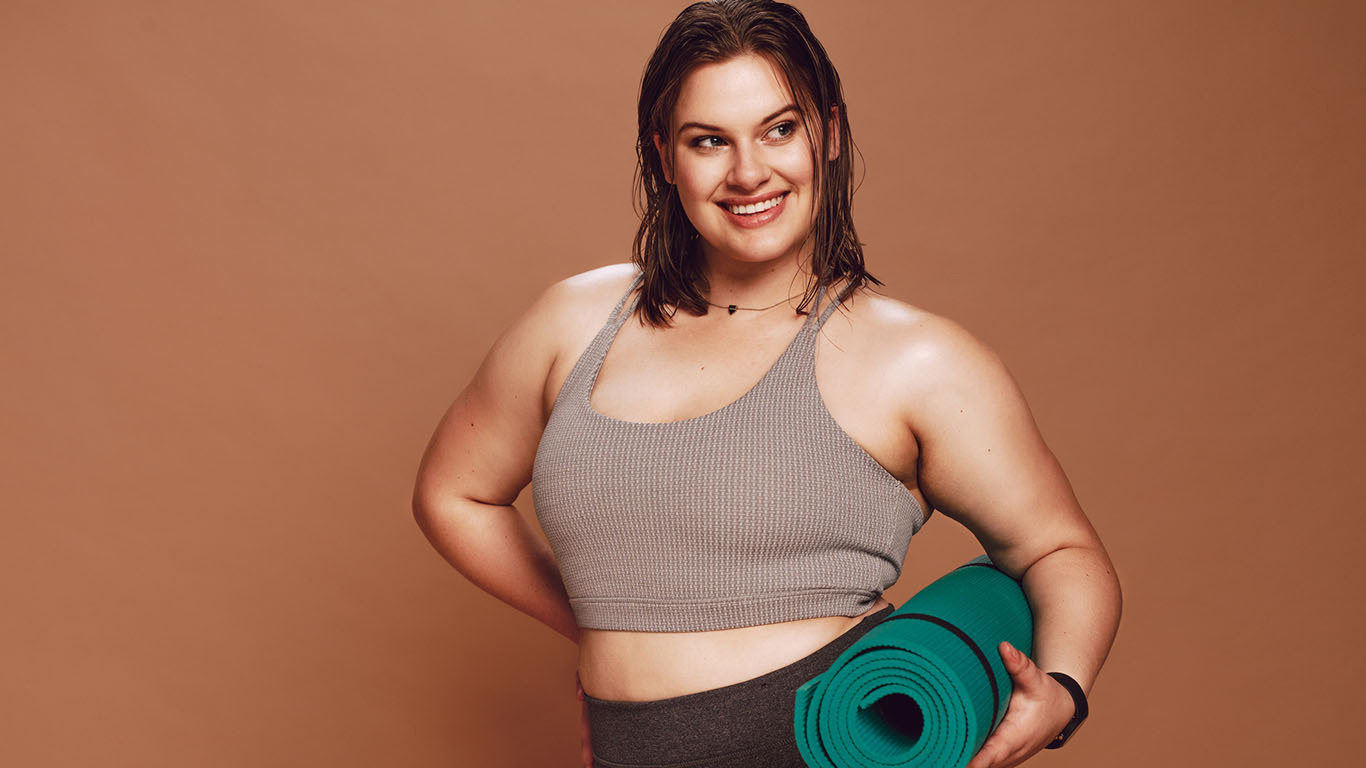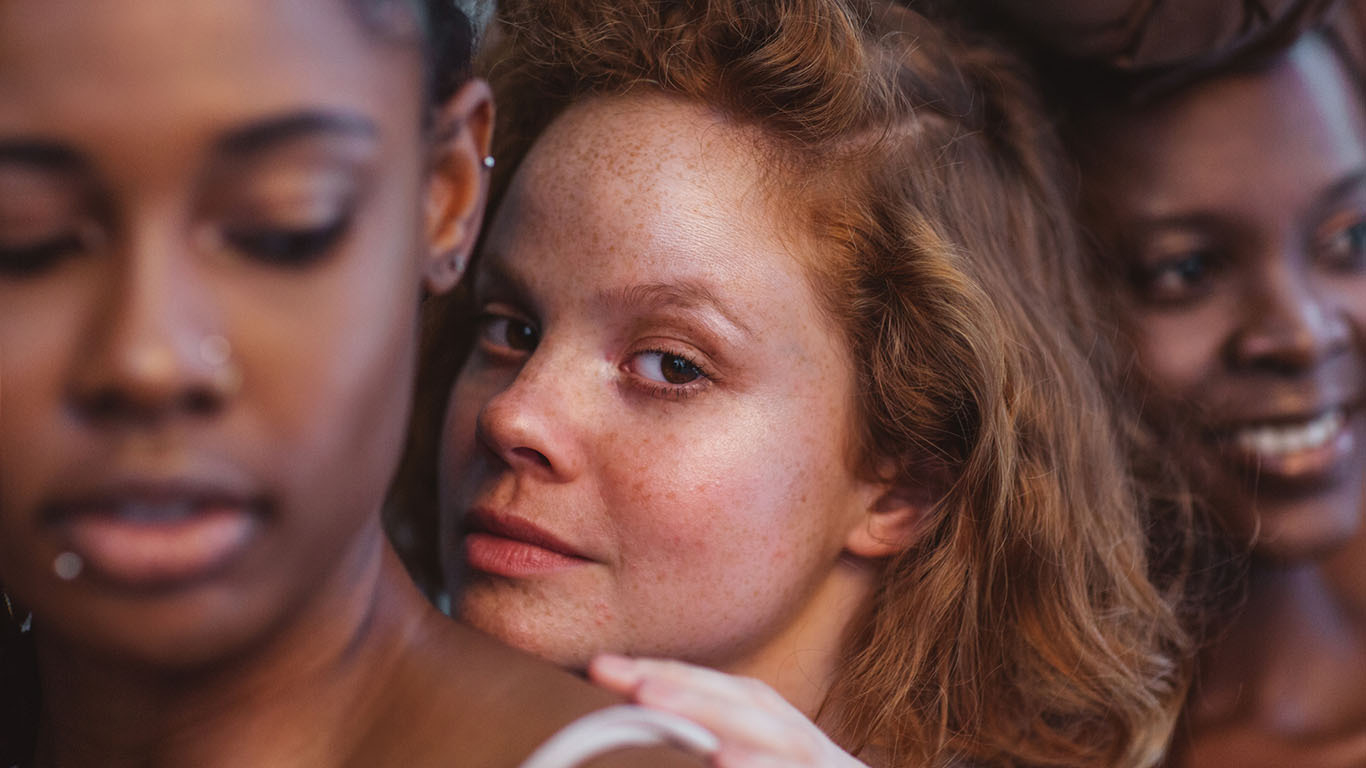Does anyone think they have a perfect body? Whether you’re someone who would, in all seriousness, compare yourself to Kim Kardashian and get depressed about not having a 24-inch waist; or – like me – has common-or-garden cellulite, stretch-marks, curves and padding, many of us worry about wearing a swimsuit in public.
At a spa, at least, you have the option to snuggle in your robe, or quickly disappear into a tub of bubbles or a room of steam.
But why do we care about how our body looks when we live in an era when the #bodypositive movement is growing, when caring about wellness and green issues is more respected than focusing on our looks?
First, we should note that most of our body issues have more to do with our mental wellbeing than our willpower.
Body Dysmorphic Disorder (BDD), anorexia, orthorexia (addiction to clean eating) and bulimia are mental health issues that may require professional help and support. Also, if you have experienced trauma in your life, your body often carries those memories in the form of pure emotion. Being in strange or vulnerable situations can trigger the feelings attached to the trauma without the context of it being a memory, something that happened in the past and not here-and-now. These ‘body memories’ could even go back to school days, or before.
If this is you, you may need to talk to someone who can help you learn to spot and manage your triggers rather than suffer in silence. Even if you haven’t experienced trauma or body disorders, many of us can relate to some of the feelings or symptoms, from low self-esteem to feeling vulnerable to self-loathing.
But, to be fair, it isn’t all in your head.

Writers on mental health often point out that a capitalist culture relies on the fact that we are never satisfied with who we are; we will always need to buy the latest clothes/make-up/holiday and try the latest diets or eating fads to make us happy. If we are thin with this car and these new shoes, life will be great, and we’ll never be sad and vulnerable again. But the only people we are making happy are the influencers and businesses whose stuff we buy. We remain essentially the same, only poorer and more unhappy.
Our culture bombards us with demands that we conform to a ‘perfect’ shape, while the media is constantly denigrating and ‘fat-shaming’ people. Some even blame the collapse of the NHS on obesity (as though people are selfishly choosing to be overweight instead of than struggling with often serious issues), rather than poor management and lack of mental health funding.
Social media is great for connecting and inspiration (see below) but some studies have shown that women compare themselves negatively to other women’s selfies. For a more balanced look at the effects of social media read this BBC overview.
However, if there is one piece of advice for mental wellbeing, in life or online, it is this: don’t compare yourself to other people. And remember, just because they are photographed smiling, doesn’t mean they are happy – read this about the influencer who quit.
Body shaming is extremely pernicious in our culture, which is why it takes courage and awareness to block out the negativity. Take your strength from the fact that the post-#MeToo era is not taking it lying down. Now is the time to celebrate difference and unique life experiences. Not conforming to type, as Susie Orbach, psychoanalyst and author of Fat is a Feminist Issue has written, can be an act of rebellion and courage.
People like influencer, model and body positive activist Tess Holliday are trying to break the mould, carrying forward the torch from first and second wave of feminists to end fat discrimination. The Be Real campaign aims to focus on healthy living and wellbeing instead of weight and appearance. Behind the Scars is an amazing photography campaign that celebrates scars of all shapes and sizes.

To state the obvious, we are not doled out supermodel bodies like car parts in a car factory. Some of us were born with inherited contours, or have been marked by illnesses, disabilities and life events that make us stand out in a crowd. Many of us are the result of adaptations over generations to suit our environments – sturdy strong legs would be hugely coveted in mountainous regions, if not on a California beach.
We are all different frames and sizes, genetically, environmentally and culturally determined, with a little bit down to what we eat and do. Surely the uniqueness of our bodies should be something to celebrate in this supposedly individualistic age.

Even here on the GSG we occasionally let slip a negative, judgemental adjective when describing our bodies – a recent example was someone describing their skin colour as ‘quite horribly lily-white’. If you remove ‘horribly’, lily-white sounds simply descriptive as well as rather beautiful. It is also more accurate: I have never thought of this person as having a horrible skin tone, quite the contrary. It is shocking to hear someone speaking to themselves this way: imagine if she said the same thing about someone else.
So many women I know, from slender to curvaceous (and it is nearly always women, although more men are becoming vulnerable to society’s pathological perfectionism), thinks she needs to lose weight, that she was happiest when she was a size 0. (If you probe further, it usually turns out she was having a major life crisis at the time but happened to be very popular with men during this vulnerable period). She may also list a bunch of things that sound ridiculous when spoken aloud (ie "I hate my chin/knees/back-pimples/hips..."). These all come from an extremely critical and negative perspective: which is why body confidence demands compassion and self-care rather than diets and despair.
We may self-denigrate so as not to appear too arrogant, but words are powerful things, and negative self-speak is toxic. Notice when you do it and begin to edit out the negative words: find a way to describe your body that is creative and intelligent, as if you were a novelist, not the class bully. You don’t have to be gushy, just be fair, observant and kind.
To begin to think about our bodies, we need to step outside our consumer culture and begin a private dialogue with ourselves. Our relationship with our own body is personal: it’s probably the most important – and certainly the longest – relationship in your life. You would not subject your lovers or friends to such cruelty or scrutiny and comparison, so why be cruel to this loyal companion who has been through literally everything with you?
Treat your body as a treasured friend who has seen you through some good times and bad. Those scars and stretch marks and even your cellulite, they are the story of you, but also of your parents and your grandparents, your ancestors, and of your children, too. Your body is not a plastic mannequin prototype but a map of your life, culture and heritage, proof that you are unique.
Try self-care at: The Lifehouse Spa, Elan Spa at Mallory Court

A mindful body scan helps you check in with your body, non-judgementally, with compassion and from the inside rather than scanning it for flaws from the outside. What are the feelings that come up as you focus on different areas? What do you need to take care of?
Mindfulness encourages us to accept who we are and enjoy each moment of living (we’re only on the planet a short time: why spend it worrying about what other people think about your thighs **NB They don’t think about your thighs at all. They are too busy worrying about their own). Mindfulness also encourages us to enjoy our bodies from the inside – focusing on sensations, feelings, emotions – rather than the outside. Yes, hashtag mindfulness has reduced an ancient philosophy of being – along with everything else – to a competitive photo op. But if you can turn off your social media for a moment and practice meditation, you may find out who you are rather than who you are supposed to be.
Try meditation at: Bamford Haybarn, Champneys
Reframing: Not about looks, about feels and dos
Rather than judging what it looks like, what can your body do? If it wasn’t for your body, you wouldn’t be able to swim, run, hug, give birth, have sex, dance. Make a list of all the amazing memories you have thanks to body. Your body can make you feel so good: why can’t you return the favour?
You may have been the last to be picked for teams at school, but don’t let that stop you getting out there and trying a new sport. Our 50-year-old Spa Spy has taken up horse-riding and wild swimming. Many grown-ups are learning surfing, paddle-boarding or adult swimming lessons at their local pool. It’s not about winning or losing anymore – it’s about the adrenalin highs, the sense of achievement, the sheer fun of it.
Try surf school at The Headland, or a dance retreat at Ragdale Hall

Savant Spy
5th July 2019
Spy Likes:
Clever, inspiring design, sublime views, a vast, clean and empty pool, solitary relaxation areas to read, write or commune with my muse.
Spy Dislikes:
Small talk, discussions about spirituality or astrology, any products containing tea tree oil or aloe (sadly am allergic), busy pools where you can’t do laps.
